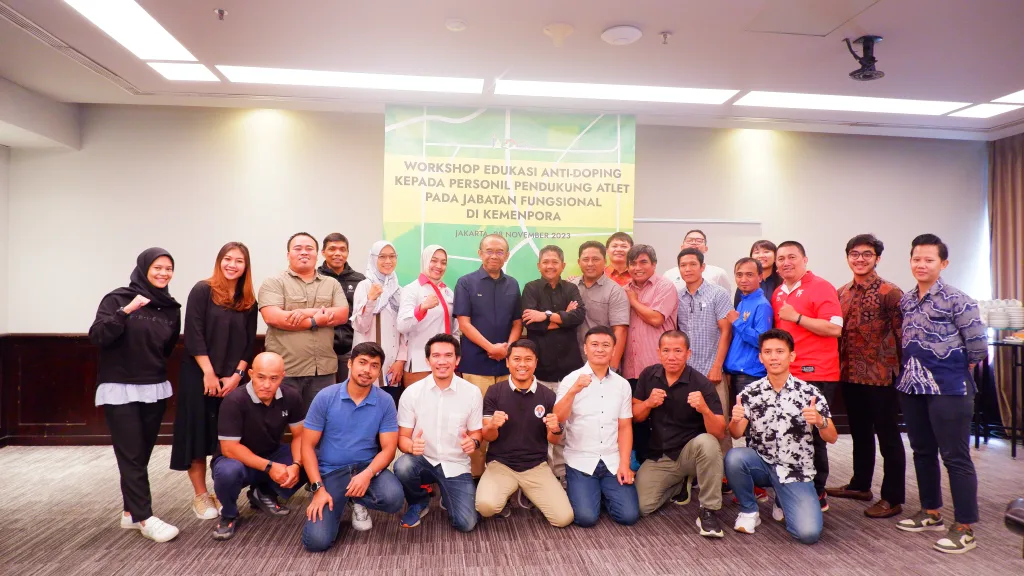
Jakarta, 28 November 2023
IADO and the Ministry of Youth and Sports held a workshop for anti-doping education, attended by 25 participants from various national federations such as shorinji kempo, wrestling, shooting, boxing, athletics and others. That activity presented two speakers from IADO, including Mr. Gatot S. Dewa Broto as chairman of IADO and Natashya Marcellina Ardiany as Director of Education of IADO.
Gatot presented anti-doping overview material in which he explained the anti-doping area where education is the first line of anti-doping, then there is testing, communication, intelligence and investigation, legal, and result management. In addition, on his presentation the Chairman of IADO explained the beginning of the establishment of IADO, such as when on 2006 the Indonesian anti-doping organization was called LADI (Indonesian Anti-Doping Agency) emerged, and then on 2021 the organization was sanctioned by WADA so that IADO consequently tried to improve a lot. Furthermore, on the beginning of 2022 NADO of Indonesia was declared free from sanctions, and decided to change its name to IADO (Indonesia Anti-Doping Organization). Gatot also explained the parties which are IADO’s partners consist of the government (among others Ministry of Youth and Sports), anti-doping organizations (WADA and RADO), and sports organizations (NOC, NPC, National Sports Committe / KONI and NFs).
The second speaker, Natashya Marcellina Ardiany, explained about anti-doping education starting from the purpose of anti-doping education, namely as a strategy to prevent doping violations, behavioral efforts in line with clean sports values, and as an athlete’s first experience with anti-doping. Natashya explained that there are 11 anti-doping violations that apply to athletes and 7 apply to athlete support personnel. The violations include the presence of banned substances in the body, the use of banned substances, avoiding or refusing to be sampled, failing to fill out whereabouts, damaging or trying to damage the doping control section, possession of banned substances, trafficking in banned substances, trying to provide banned substances to athletes, engaging in efforts to cover up acts of doping violations, association with athletes or athlete support personnel who are being sanctioned, and try to prevent or retaliate for reporting to the authorities.
Furthermore, before the event was closed the participants who attended were asked to fill out a survey related to anti-doping education and socialization activities. The result has shown that the majority of participants, as much as 96.3%, felt that anti-doping education was very useful, and 85.2% of participants were very satisfied with this anti-doping education activity.